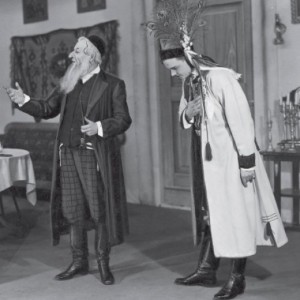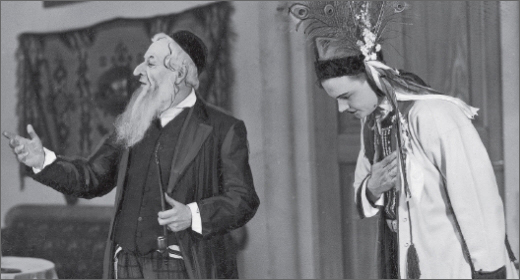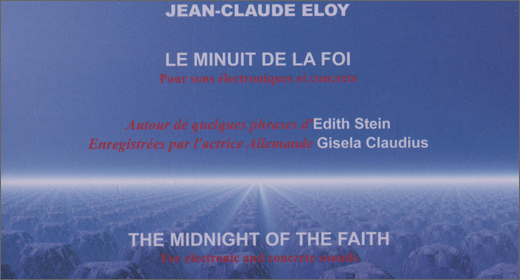The juxtaposition of growling electronics with light radio orchestra entertainment, a romantic harp and accordion duet with glitched piano notes, a little noise and a lot of colour offers a hörspiel of dramatic contrasts and an epilogue that speaks volumes even beyond its source text.

[Release page] Ireneusz Socha is a force on the Polish art scene—composer, drummer, founder of magazines and multimedia performance groups, writer and translator. In 2005, he realized the sprawling masterpiece Sztetlach (Dembitzer Music), mustering a who’s who of the Polish avantgarde to play specially commissioned pieces recapturing and commenting on the thousands of small, disappeared Jewish communities once scattered throughout the land. Sztetlach is dually based on Elegy for the Jewish Villages (1961) by Simon Laks, who survived leading the Birkenau prisoners orchestra to live out his days in Paris, and the poem “Little Towns 2.1” by Socha’s colleague Jaroslaw Lipszyc, poet and “literary remixer,” the latter of which serves as a commentary to the poem upon which Laks had based his song. A fittingly multifarious work of musique concrète, virtuoso accordion, electronics, solo electric guitar, klezmer clarinet, liturgical cello, cut-up field recordings, treated piano, each piece named for one significant community no longer found on any map.
Workshopped and reshaped at various installations and culture festivals, Polin is a coda to Sztetlach, with Socha sampling both the original and vintage recordings and adding new musical elements (primarily, if I understand right, Jaroslaw Bester of the Cracow Klezmer Band on accordion) to create a capsule, cubist version of the original, a twenty-minute rethink that is both irreverent and casts new and loving light on the original. The juxtaposition of growling electronics with light radio orchestra entertainment, a romantic harp and accordion duet with glitched piano notes, a little noise and a lot of colour offers a hörspiel of dramatic contrasts and an epilogue that speaks volumes even beyond its source text.
Polin is available on Mathka. [Release page]


















![Pole :: Tempus Remixes (Mute) — [concise]](https://igloomag.com/wp/wp-content/uploads/2025/04/pole-tempus-remixes_feat-75x75.jpg)






![Hasbeen :: Bunker Symphonies II (Clean Error) — [concise]](https://igloomag.com/wp/wp-content/uploads/2025/04/hasbeen-bunker-symphonies-ii_feat-75x75.jpg)
